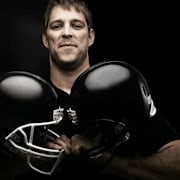Unlocking Athletic Excellence: The Power of Delayed Specialization in Youth Sports

For years, the Soviets approached athletic development with a philosophy that was very different from the West. Instead of early specialization, they had all their kids do everything: soccer, gymnastics, swimming, dancing and anything that emphasized rhythm and movement. They believed exposing young athletes to a wide range of activities would build a broad base of motor skills. When it came to the Junior Olympics, they often got beat by Western countries, where kids specialized in a single sport from a young age. It looked like a flawed strategy, but they were playing the long game.
The Soviets didn't let their athletes specialize until much later, around 17 or 18 for sports like Olympic weightlifting, and what they discovered was profound. While Western athletes might have had an edge early on, Soviet athletes became superior in the long run. By the time they hit their late teens, they were more well-rounded, adaptable, and physically developed. This gave a massive advantage as they transitioned into higher levels of specificity. Specializing too early, the Soviets realized, limited athletic potential and created athletes who were good at one thing but lacked general physical preparedness (GPP). By allowing their athletes to develop a wide range of motor patterns first, they created a foundation that lead to continued athletic success.
Even in sports like gymnastics, where early specialization is a must, the Soviets delayed this hyper-focus compared to the West. For Olympic weightlifting, they didn’t start specializing athletes until they were around 17 or 18. And the results spoke for themselves: they dominated international competitions. Their approach was based on the belief that athleticism is not about mastering one skill at an early age but about creating an athletic base that can be applied later in life.
This concept is still relevant today. CrossFit, despite its many flaws, tapped into a similar philosophy early on. The idea was to create athletes who weren't specialists but had a broad spectrum of physical capabilities. While this approach can sometimes lead to a "jack of all trades, master of none" scenario, it offers a counterbalance to a push for kids to specialize in a single sport too early. In today’s world, it’s all too common for parents to push their kids into year-round sports—baseball, soccer, basketball—hoping it results in a college scholarship or a path to professional sports.
The reality is, early specialization often leads to burnout, injuries, or simply a lack of enjoyment. Those rare cases of athletes like Tiger Woods or Andre Agassi, who specialized from a young age and made it big, are truly one-in-a-billion stories. For most kids, the pressure to focus on one sport too early does more harm than good. The Soviet model of broad athletic development offers a lesson: let kids play, let them have fun, and don't rush to specialize too soon.
